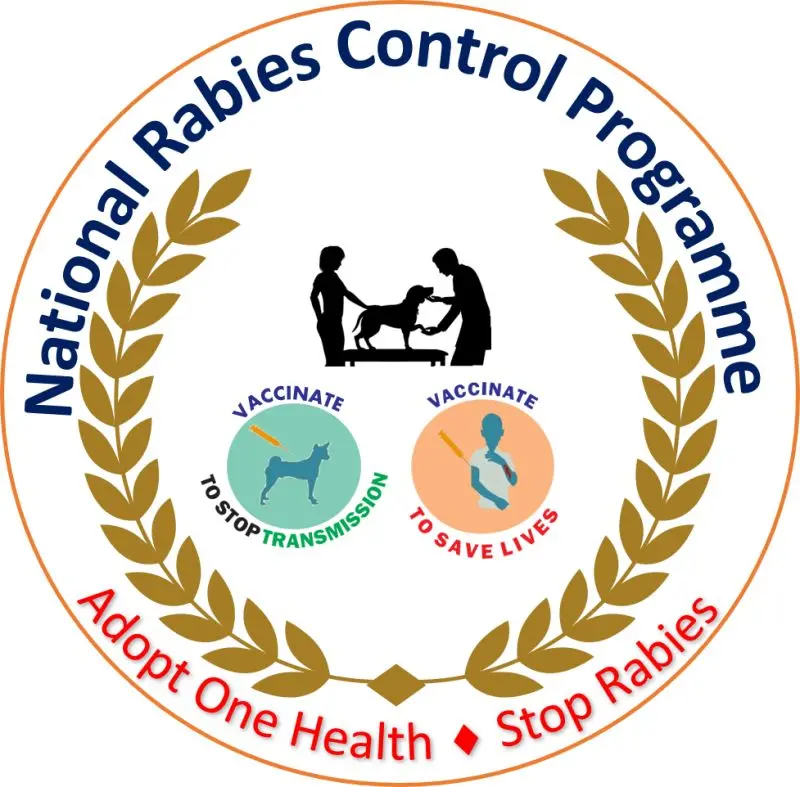Government of India Launched National Rabies Control Program (NRCP) for Prevention and Control of Rabies
The Indian government has launched a new program aimed at preventing and controlling rabies in the country. The National Rabies Control Program (NRCP) will be implemented by the Ministry of Health and Family Welfare in collaboration with the Ministry of Agriculture and Farmers’ Welfare.
Key Features of NRCP
The NRCP will focus on several key areas:
- Vaccination of dogs, which are the primary carriers of rabies
- Strengthening of surveillance systems for rabies
- Provision of post-exposure prophylaxis (PEP) for people who have been bitten by dogs or other animals that may carry rabies
- Raising awareness about rabies and how to prevent it

Why This News Is Important
Rabies is a viral disease that is transmitted through the saliva of infected animals, most commonly through bites. It can cause inflammation of the brain and is almost always fatal once symptoms appear. In India, rabies is a major public health concern, with an estimated 20,000 deaths per year. The vast majority of these deaths are caused by bites from infected dogs.
The NRCP is an important step in addressing this issue. By vaccinating dogs and providing PEP to people who have been bitten, the program aims to reduce the incidence of rabies and ultimately eliminate the disease in India.
Historical Context
Rabies has been a problem in India for many years. In the past, efforts to control the disease have focused mainly on the culling of stray dogs. However, this approach has been criticized as being inhumane and ineffective. Vaccinating dogs, on the other hand, has been shown to be a more effective way to control the disease.
In recent years, there have been several initiatives aimed at reducing the incidence of rabies in India. In 2016, the Indian government launched the National Rabies Control Program (NRCP) with the aim of eliminating the disease by 2030. The program was launched in response to a resolution passed by the World Health Assembly in 2015, which called for the elimination of human rabies by 2030.
Key Takeaways from National Rabies Control Program
| Serial No. | Key Takeaways from National Rabies Control Program |
|---|---|
| 1. | The Indian government has launched the National Rabies Control Program (NRCP) to prevent and control rabies in the country. |
| 2. | The program will focus on vaccination of dogs, strengthening of surveillance systems for rabies, provision of post-exposure prophylaxis (PEP) for people who have been bitten, and raising awareness about rabies. |
| 3. | Rabies is a major public health concern in India, with an estimated 20,000 deaths per year. |
| 4. | Vaccinating dogs has been shown to be an effective way to control the disease. |
| 5. | The NRCP aims to eliminate rabies in India by 2030. |
Conclusion
In conclusion, the launch of the National Rabies Control Program is an important step in addressing the problem of rabies in India. By focusing on vaccination of dogs, strengthening surveillance systems, and providing PEP to people who have been bitten, the program aims to reduce the incidence of the disease and ultimately eliminate it in India. It is important for students preparing for government exams, including those for positions in the health sector, to be aware of this program and its objectives.
Important FAQs for Students from this News
Q. What is rabies and how is it transmitted?
A. Rabies is a viral disease that affects the central nervous system of mammals, including humans. It is usually transmitted through the bite or scratch of an infected animal.
Q. What are the symptoms of rabies?
A. The symptoms of rabies include fever, headache, muscle weakness, seizures, and paralysis. As the disease progresses, the symptoms can become more severe and may include hallucinations, agitation, and hydrophobia (fear of water).
Q. How can rabies be prevented?
A. Rabies can be prevented through vaccination of pets and other domestic animals, as well as through the use of post-exposure prophylaxis (PEP) for individuals who have been bitten or scratched by an infected animal.
Q. What is the goal of the National Rabies Control Program?
A. The goal of the National Rabies Control Program is to prevent and control rabies in India through a variety of measures, including vaccination of animals, education and awareness campaigns, and enhanced surveillance and reporting of cases.
Q. Who is responsible for implementing the National Rabies Control Program?
A. The National Rabies Control Program is being implemented by the Ministry of Health and Family Welfare, in collaboration with other government agencies and NGOs.
Some Important Current Affairs Links


















